Landing entry-level marketing jobs can be highly competitive, with so many candidates aiming for the same roles. Because of that, standing out today requires more than a college degree or basic experience. Instead, employers want candidates with a well-rounded skill set, from strong communication to adaptability, to thrive in such positions.
If you’re an aspiring professional aiming to land a marketing role, this guide is for you. Read below to learn the essential skills needed to thrive in marketing. Discover the practical ways to develop them and how to position yourself as a top candidate in a crowded job market. Whether you’re new to entry-level marketing or looking to sharpen your abilities, this guide will help you take the right steps toward a successful career.
Key Takeaways:
- Success in entry-level marketing jobs requires communication, creativity, analytical thinking, and adaptability to stand out in a competitive job market.
- Internships, freelance projects, volunteer work, and personal marketing initiatives provide valuable practical experience that employers look for.
- Staying updated through online courses, certifications, industry blogs, and networking events helps professionals keep up with evolving marketing trends.
- A strong portfolio, optimized LinkedIn profile, and compelling resume with real-world examples help demonstrate expertise to potential employers.
Must-Have Skills for Entry-Level Marketing Jobs
Marketing requires various qualities or competencies for professionals to plan, execute, and monitor client outreach campaigns effectively. The following are some of the best ones beginner professionals must possess:
Communication skills
Effective communication is one of the most valuable skills in marketing. Whether you’re crafting compelling messages, engaging with current and potential customers, or collaborating with other departments, the ability to articulate ideas clearly in various channels plays a crucial role in helping professionals thrive.
Here’s a breakdown of the many aspects of effective communication:
- Verbal communication: Marketing professionals frequently present concepts, pitch campaigns, and interact with clients. That means clear and persuasive speaking skills are vital to building trust and conveying ideas effectively.
- Written communication: From emails to ad copies, marketers must write clearly and persuasively. They must have strong writing skills to improve messaging and audience engagement.
Out-of-the-box thinking
Marketing is all about capturing attention and setting a brand apart from the competition. To do this successfully, marketing professionals must embrace unconventional ideas, challenge traditional strategies, and find innovative ways to connect with their target audience.
This competency encompasses various areas, including:
- Brainstorming unique campaigns: The best marketers think beyond the obvious to create fresh, engaging campaigns that resonate with the target audiences. Whether it’s an unexpected ad concept or an unconventional brand partnership, standing out requires originality.
- Adaptability in a fast-paced environment: Marketing trends evolve rapidly, and successful professionals must be able to pivot strategies, implement new platforms, and experiment with different approaches to stay ahead.
- Creative problem-solving: Marketers who think outside the box find alternative solutions to challenges, whether working with a limited budget, handling a branding crisis, or targeting a difficult demographic.
Understanding of the basic sales techniques
Marketing and sales go hand in hand in driving business growth. Because of that, marketing professionals must have a grasp of the basic sales techniques to persuade potential customers and drive conversions through their campaigns.
Some of the crucial sales techniques that marketers must know include:
Persuasion
Marketers must understand the psychology behind consumer decisions. Techniques such as reciprocity (offering value before asking for something), scarcity (limited-time offers), and social proof (customer testimonials and reviews) can significantly influence buying behavior.
Active listening
Great salespeople listen to every customer’s needs before pitching a product. Marketers can apply this by conducting market research, analyzing customer feedback, and tailoring messaging to address pain points.
Sales funnel proficiency
Marketing efforts should align with different stages of the sales funnel—awareness, consideration, and decision. Knowing how to guide prospects through each stage ensures higher conversion rates.
Analytical thinking and data interpretation
Marketing today has become even more data-driven. Because of that, understanding and analyzing key metrics can help marketing professionals refine strategies and make informed decisions for their outreach initiatives.
Some of the key metrics that marketers must be familiar with include:
- Conversion rates
- Customer engagement
- Return on investment (ROI)
Organizational and time management skills
Generally, marketing professionals juggle multiple projects, deadlines, and tasks. Without the proper management skills, it’s easy for them to lose track of their responsibilities.
Strong organizational skills help marketers achieve the following:
- Manage multiple campaigns simultaneously without missing important details or deadlines.
- Use project management software to track deadlines, assign tasks, and streamline workflow efficiency.
- Stay ahead of deadlines by effectively planning and scheduling content, promotions, and events.
- Improve collaboration by keeping teams aligned on objectives, timelines, and deliverables.
- Reduce stress and increase productivity by maintaining a structured approach to workload management.
- Ensure consistency in branding and messaging across various marketing channels.
- Allocate resources effectively by tracking budgets, timelines, and campaign performance.
Networking and relationship-building
Building relationships with industry professionals can open doors to valuable opportunities. In a field driven by collaboration, referrals, and industry insights, connecting with the right people can help you:
- Discover hidden job opportunities: Many companies prefer to hire through referrals, and networking gives you access to roles that may never be publicly posted.
- Gain valuable industry insights: Engaging with professionals helps you stay updated on marketing trends, best practices, and emerging technologies.
- Receive career guidance and mentorship: Connecting with experienced marketers can provide valuable mentorships, helping you navigate challenges and accelerate your professional growth.
- Enhance collaboration and partnerships: Networking can lead to business partnerships, freelance opportunities, or collaborations that help you build experience and credibility.
How to Improve Your Marketing Skills
Besides self-learning, applying your skills in real-world scenarios is key to standing out in entry-level marketing jobs. Employers value hands-on experience, and showcasing your abilities through projects, networking, and certifications can set you apart.
Here are some of the best steps you can take to build these essential marketing skills:
Gain hands-on experiences
Practical experience makes a huge difference in marketing. Here’s how to build it:
- Internships: Gain exposure to market research, campaign execution, and customer engagement by working with agencies, startups, or corporate marketing teams.
- Freelancing or side projects: Offer entry-level tasks like social media management or content creation services to small businesses. You can access these opportunities through platforms like Fiverr and Upwork.
- Volunteer work: Help nonprofits with their promotional campaigns to gain experience while making an impact.
- Self-made marketing project: Start a blog, grow a social media page, or run a small ad campaign to showcase creativity and strategy.
Leverage training and continuous learning
Marketing is constantly evolving, meaning staying ahead is crucial to becoming a top candidate or employee. Here are some of the channels you can use:
- Online courses: Learn digital marketing, analytics, and branding on platforms like Coursera, HubSpot Academy, and LinkedIn Learning.
- Workshops and webinars: Gain industry insights and connect with professionals at marketing events and summits.
- Industry blogs and podcasts: Stay updated on the latest trends, strategies, and best practices by following reputable marketing blogs and listening to industry-focused podcasts.
- Certifications: Earning industry-recognized certifications in areas like digital marketing, direct sales, branding, or analytics can strengthen your resume and demonstrate expertise. Look for certifications from reputable platforms like Google, HubSpot, Meta, industry associations, or private companies.
Showcasing These Skills to Employers
Developing marketing skills is only half the battle—demonstrating them effectively is what sets you apart. Follow these steps to become a top candidate for your desired employer.
Build a strong portfolio
Even without professional experience, you can still showcase your competencies through the following:
- Social media accounts or campaigns you’ve managed.
- Blog posts, ad copies, or marketing materials.
- Analytics reports and case studies with measurable results
The good news is that making a portfolio has become more accessible today thanks to online tools like Wix, WordPress, and Behance.
Highlight skills in your resume and cover letter
When highlighting your skills in your resume and cover letter, go beyond simply listing them. Instead, demonstrate how you’ve applied them in real-world situations.
For instance, use specific, results-driven examples like the following:
- “Developed a social media campaign that increased engagement by 40 percent.”
- “Launched a marketing strategy that led to a 20% sales boost.”
Meanwhile, you must craft a compelling narrative that showcases your experiences, marketing abilities, and the impact of your contributions in your cover letter. Doing so helps complement what you’ve highlighted in your resume.
Leverage LinkedIn and personal branding
Employers today often turn to LinkedIn to gauge the credibility of their desired applicant. So, you must use this platform to your advantage. Here are some of the best practices to follow:
- Showcase projects in the Featured section.
- Write posts about marketing trends to display expertise.
- Engage with professionals and join industry groups.
Demonstrate skills in interviews
Once you’ve landed an interview, you must be ready for scenario-based questions to demonstrate your expertise further. Some of the best examples include:
- Explain how you solved a marketing challenge.
- Walk through your thought process behind a campaign.
- Share real examples of creativity, analytics, or persuasion techniques
It would also help to bring a campaign idea or presentation to showcase your creative and strategic thinking.
Get testimonials and recommendations
Positive feedback from mentors, professors, or clients builds credibility. So, if you’ve freelanced or conducted any similar work before, ask for LinkedIn recommendations or written testimonials from past projects. You can also publish their reviews on your portfolio site.
Build the Necessary Skills to Become a Top Marketing Professional
Breaking into entry-level marketing jobs requires a strong skill set and a proactive approach. By mastering communication, creativity, data analysis, and networking, you can position yourself as a top candidate.
The key is continuous learning and practical application. Take advantage of online resources, build your personal brand, and seek mentorship opportunities. With the right mindset and skills, you can launch a successful career in marketing. Looking to grow your career in marketing? Explore opportunities at Nobel Marketing and take the first step toward professional success!

